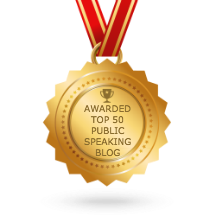On Tuesday, October 12, 2010, The Houston Chronicle highlighted a trend that foreign-born professionals are working with voice and speech experts to reduce or modify accents so that they can be understood when they speak English. The article can be found online at http://www.chron.com/disp/story.mpl/life/main/7243893.html.
Non-native speakers are often challenged to be understood when they speak English. Professionals with advanced degrees can especially lose confidence when others don’t understand their speech. They feel they are not trying hard enough, according to the Chronicle article. I agree with the article almost entirely.
In over 30 years of coaching non-native speakers, my observation is that the problem is not their lack of understanding of the English language. Rather, it is simply that they did not learn how to use their teeth, tongue and lips to pronounce some of the sounds of English correctly. When they learned English, they were taught grammar and vocabulary, but not precisely how to form the specific vowel or consonant sounds. So they had to rely on their ear to try to figure out how to make sounds that are not used in their native language. For instance, Asians often find R and L challenging. Indians often pronounce V as W and W as V because that is how they pronounce them in their own language.
Over the years, I have evolved an approach to coaching foreign-born professionals that does not take months to help them articulate English more clearly. In a few minutes, I can identify the consonant sounds that each person is not pronouncing correctly. Then in a few sessions, I can teach them how to form those sounds so they feel what to do with teeth, tongue and lips to pronounce those sounds correctly. I call this diction for foreign-born professionals. In a matter of a few weeks, with a little practice in diction, their speech becomes much more understandable. They do not have to “reduce” their accent or get rid of it, they only have to speak English clearly enough that others can understand them with their native accent. For most professionals working in a global business climate, that is enough!




